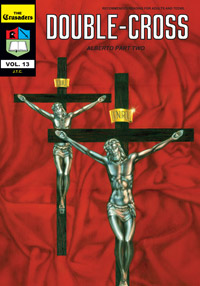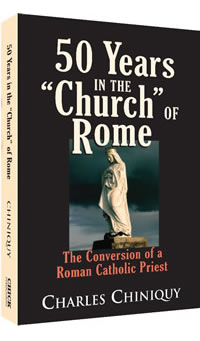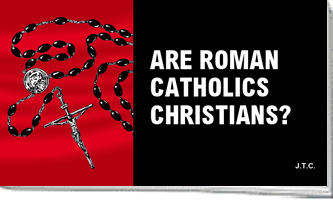Polish Protestants Fear Treaty Will Bring Vatican Stranglehold
- Issue Date: November/December 1995
Polish President Lech Walesa has charged that his parliament's delay in signing a concordat, or treaty, with the Vatican shows "disregard of the Apostolic See."
But many Poles are worried that the treaty could give Rome irreversible control over schools, the army and even media such as broadcasting.
In this nation where only three percent of the population does not belong to the Roman Catholic Church, it is truly amazing that enough (presumably Catholic) lawmakers are worried over the new powers the concordat would give Rome to cause them to drag their feet.
Polish Protestants are worried that the agreement could push the few remaining non-Catholics in the country even further along the road to extinction.
Under the concordat, cemeteries, for example, would be placed entirely under the control of Catholic authorities.
Protestants are painfully aware that this could ultimately result in them having to accept a Catholic funeral for their loved ones, or face delays in burying their dead.
Mieczyslaw Olech, who heads the Warsaw Apostolic society, insists that the agreement will simply "clarify the relationship between the church and state."
But critics complain that the language of the concordat is so vague, that a more sympathetic government at some later date could interpret the agreement in a way that would give Rome a stranglehold over Poland.
Even at present, nearly all Polish students attend religious classes. However, because Protestants are such a small percentage of the population, there are often too few of them in a particular school to qualify for a separate Protestant class.
Parents must then choose between subjecting their child to the idolatrous teachings of the Catholic class which is available, or opting for no religious class at all.
While the later seems like the simple solution, since 1992 the Ministry of Education has been recording the grade for religious classes on a student's permanent record, and choosing not to attend a class results in a "dash" on the report card.
Adam Kuczma, a former leader of the Polish Methodist Church, sums up the worry of Protestants: "We fear that students who opt not to take the classes may later have trouble finding work."
Reports we have received from other Catholic countries confirm this. Young people who have chosen not to be identified as Catholic in a Roman Catholic country often find themselves unemployed, or denied entry into the best fields.
Under that kind of pressure, many will just give up and go with the flow, becoming at least nominal Catholics.
Understanding the long term value of this, the Roman Catholic Church is careful to have such religious instruction in the school systems of any country where they have the influence to do so.
They know full well that the best way to gain control of a country is to shape the thinking of its youth. Then, it's just a matter of time...
- See more articles on related topics:
- Catholicism
- Political Power
Other Articles from November/December 1995:
More on Catholicism:
Products of Interest:
-

Alberto
32-PAGE, FULL COLOR COMIC BOOK - Alberto Series Part 1 - Here is how Alberto, as a Jesuit, helped destroy churches and ministries. But as he read the Scriptures, he saw that Catholicism couldn’t save.
-

Double-Cross
32-PAGE, FULL COLOR COMIC BOOK - Alberto Series Part 2 - After his salvation, Alberto is a hunted man. No Jesuit can leave his order alive! He reveals the infiltration of Protestant organizations, and warns of false ‘brethren’ in our midst.
-

50 Years in the Church of Rome
368 pages
This classic work shows how this priest began to question Catholic teachings until he became saved, and led his entire parish to salvation. -

Understanding Roman Catholicism
224 pages
37 Catholic doctrines from the current Catechism are compared with the Scriptures. They're not Christian! 
Are Roman Catholics Christians?
Show Catholics that neither their good works nor their religion can save them.



